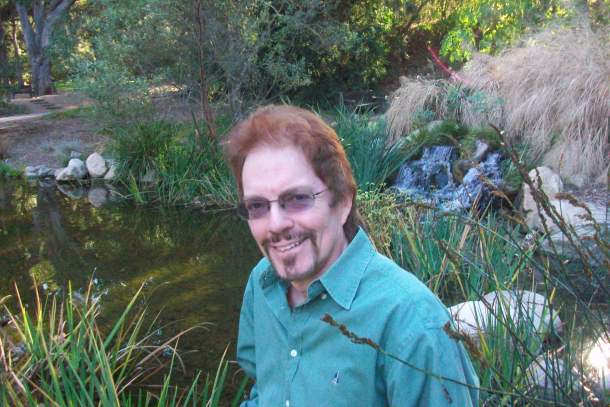Reading the Groove offers brief conversations with writers about the intersection of music, rhythm, language, inspiration, and occasional bad taste. To go to the column page, please click here.

Charles Harper Webb’s books include Shadow Ball, Tulip Farms and Leper Colonies, Liver, and Reading the Water. His poems have appeared in the Paris Review, American Poetry Review, and Ploughshares. He has been awarded a Guggenheim Fellowship, the Whiting Writer’s Award, the Kate Tufts Discovery Award, the Morse Poetry Prize, and a Pushcart Prize. Previously a rock musician and psychotherapist, he is a professor at California State University, Long Beach, where he has taught for twenty-five years.
***
Robert Stapleton: You spent your twenties touring, singing and playing guitar in rock bands. How did this prepare you for a career as a poet and teacher?
Charles Harper Webb: I learned about entertainment, showmanship, and energy — all qualities that help me to hold the interest of an audience at a reading, and students in a classroom. I also came to understand in a visceral way that I need to consider my audience when I present a song or poem. It’s too easy to take the role of the Great Artist hurling pearls before swine. I want my poems to entertain, and also to enlighten — if they’re good enough. Above all, I want them to be a pleasure to read.
RS: Do you miss making music on stage? Do you still play or sing?
CHW: Playing music on stage was an amazing rush, and a great emotional release. I miss it a lot. I sing around the house all the time, but mostly joke songs I make up, and forget, on the spot.
Spurred by my son, who’s started playing guitar, I picked up my own guitar this summer, and started practicing. No idea what I’ll do with my returning skills, but it feels good to know they’re still potentially there.
RS: Many writers begin a piece with an image or sentence, maybe a dramatic moment. Do you ever begin a poem by chasing in your head a sound or beat? How does rhythm occupy you when you write?
CHW: I’m extremely beat-driven, constantly drumming on tables, trees, steering wheels, whatever. I try to capture in words the rhythm of whatever I’m trying to describe. I normally start my poems with an image; but sometimes a sentence or phrase will embody a rhythm that I want to follow, and see where it will lead.
RS: Do you ever listen to music when you write?
CHW: Rarely. I write best under semi-sensory deprivation, where everything has to come out of my own head. On the other hand, music’s always playing in my head.
RS: What album have you listened to the most in your life, and how do you explain its hold on you?
CHW: I don’t have any one album. Albums by The Beatles, The Rolling Stones, Jimi Hendrix, Cream, Mountain, Led Zeppelin, Deep Purple, Black Sabbath, and Queen were all extremely influential for me. Beethoven’s symphonies and piano concertos, Paganini’s, Brahms’, Mendelsson’s, and Tchaikovsky’s violin concertos also knocked me out when I first heard them, and still do. I can’t explain the hold that any particular piece of music has on me. Music I love is like an addictive drug; it’s as if receptors are open, waiting for it in my brain.
***
Robert Stapleton is executive editor of Booth and teaches at Butler University. His writing has appeared in Word Riot, OCWeekly, Bathhouse, Journal of the Gulf War, Orange Room Review and elsewhere. He lives in Indianapolis.
More of Robert Stapleton’s Reading the Groove at Used Furniture.

